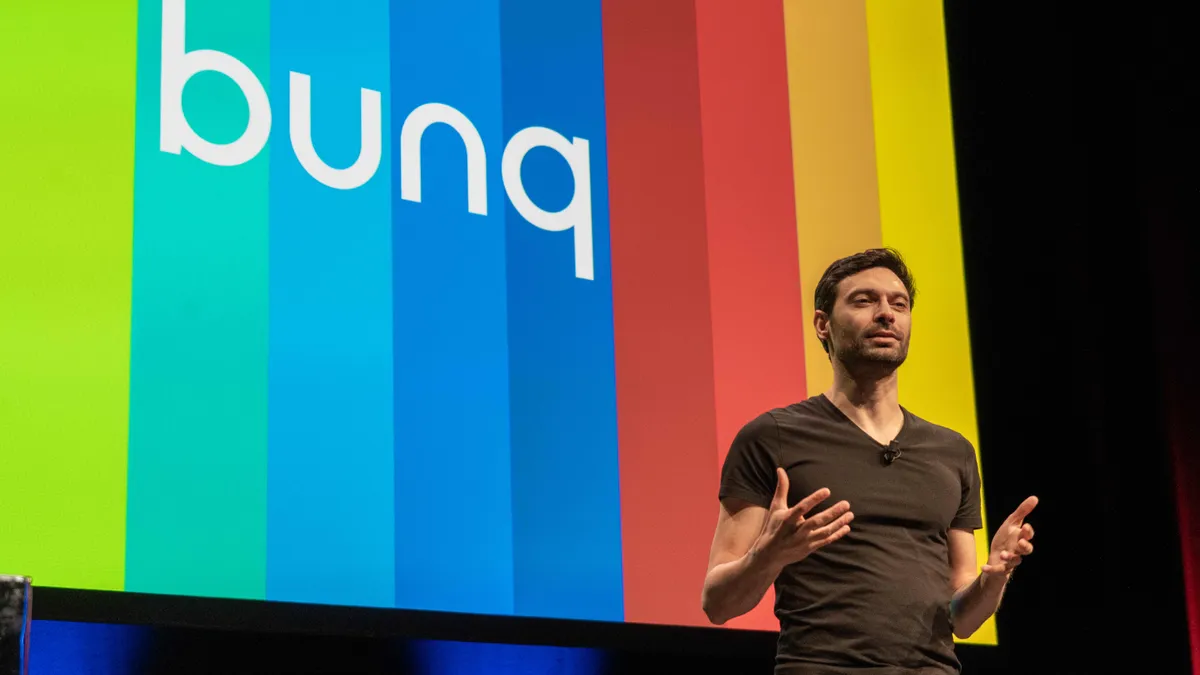Dive Brief:
- Bunq, an Amsterdam-based neobank, is seeking a U.S. banking license, the company announced Tuesday.
- The firm, which has been in informal talks with the Office of the Comptroller of the Currency, Federal Deposit Insurance Corp. and Federal Reserve, began its formal submission process for a banking license Monday, Bunq told Banking Dive.
- “We’re going stateside with a simple proposition, offering a banking product that enables US consumers and businesses to bypass banking bureaucracy by opening a fully fledged international bank account in just 5 minutes,” Bunq CEO Ali Niknam wrote in a blog post Tuesday.
Dive Insight:
Niknam said the neobank, which launched in 2012, is expanding to the U.S. to serve European expatriates “with strong ties to both sides of the Atlantic.”
“The US is home to a community of nearly 5 million digital nomads,” he said. “We will introduce this large group of location-independent people to our proven, transparent and value-based banking model, one that gives them the freedom to live life on their own terms.”
The neobank reported its first quarterly profit of $2.5 million in the fourth quarter of 2022, according to Reuters.
Bunq is hardly the only European neobank to eye the U.S. in recent years. The crowded market, however, has presented challenges for new players, which face stiff competition from traditional banks as well as other U.S.-based challenger banks.
Bunq’s pursuit of a banking license could also prove costly. Varo Bank, the first neobank to be granted a U.S. banking charter in 2020, spent nearly $100 million on the endeavor.
Revolut, a U.K.-based neobank that launched in the U.S. in 2020, submitted a draft application with the FDIC and the California Department of Financial Protection and Innovation in March 2021 to obtain a banking license.
The company chose to apply for a charter in California because of the state’s close ties with the fintech industry, the firm’s former U.S. CEO, Ron Oliveira, told Banking Dive in 2021.
Meanwhile, some European neobanks have scaled back efforts to tackle the U.S. market.
Berlin-based N26 announced in November 2021 it would abandon efforts to expand in the U.S., ending a 2½-year stateside push that began when it launched its app to a 100,000-customer U.S. waitlist in July 2019.
Monzo, another foreign challenger, has also pulled back efforts to capture the American market.
The U.K. neobank withdrew its application for a banking charter with the OCC in October 2021 after it became clear the regulator likely would not approve it, the fintech told the Financial Times.
Niknam, however, appears confident Bunq’s success in securing an EU-wide banking license through the Dutch regulator will help it win over regulatory counterparts in the U.S.
"The Dutch regulator is particularly difficult. They're globally known for being difficult and this raises some respect from the American authorities," Niknam told Business Insider.















